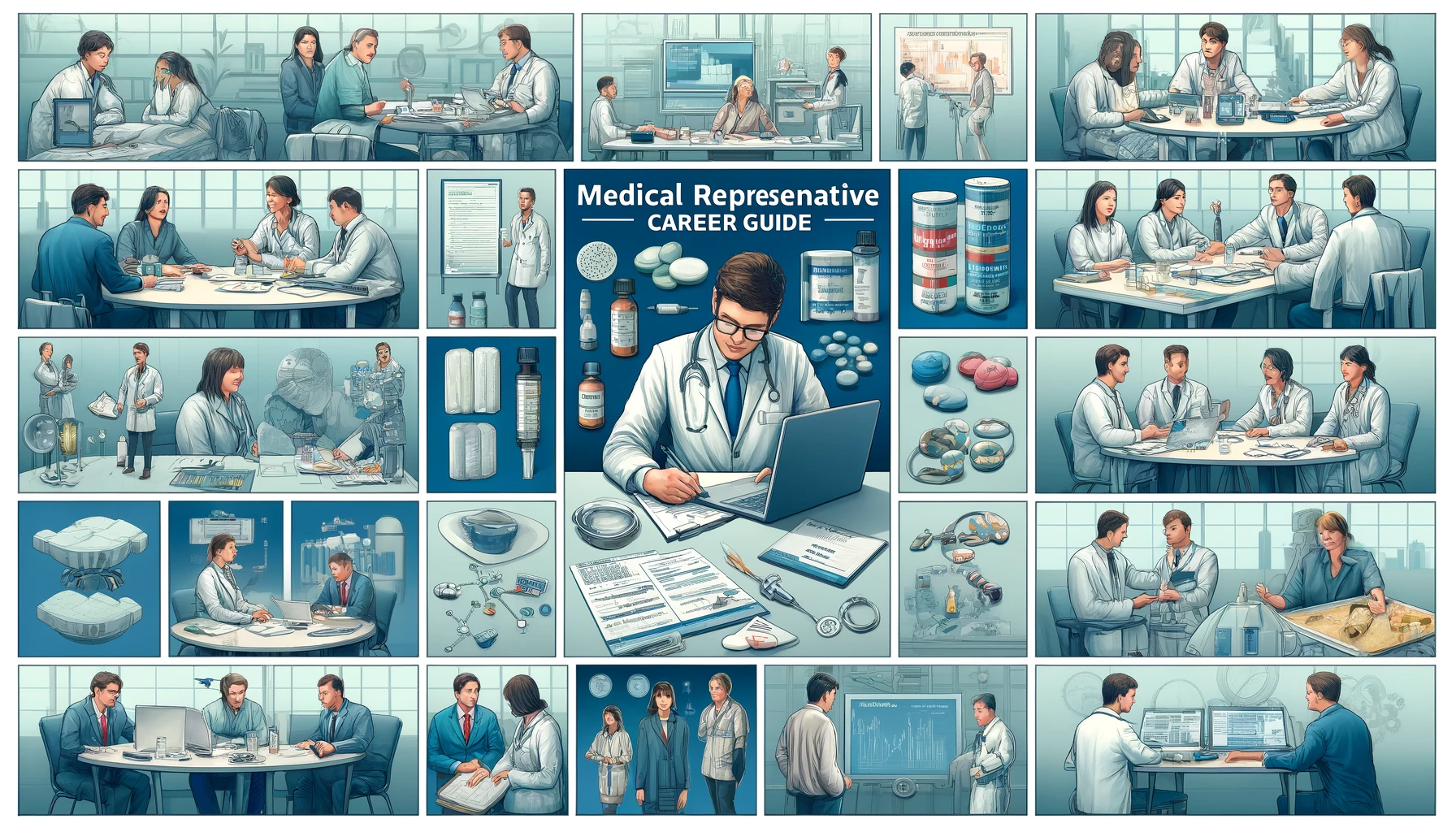I. Introduction
In the fast-paced world of healthcare, medical representatives play a pivotal role in bridging the gap between pharmaceutical companies and healthcare professionals. This comprehensive career guide delves into the realm of medical representation, outlining the essential qualifications, skills, and strategies that pave the way to becoming a successful medical representative.
Overview of the Medical Representation Profession
Medical representatives, often referred to as pharmaceutical sales representatives, are the vital link between healthcare providers and pharmaceutical firms. They are responsible for conveying product information, educating professionals, and influencing prescribing decisions.
Importance and Challenges Faced by Medical Representatives
The significance of medical representatives lies in their ability to provide accurate and up-to-date information to healthcare professionals. However, this role is not without its challenges, including navigating regulatory guidelines and building trust with healthcare providers.
Recommended: How to Overcome Challenges Faced by Medical Representatives
II. Qualifications and Skills for Success
A. Educational Background
To embark on a successful medical representative career, certain educational qualifications are essential. These include relevant majors and degrees in life sciences, pharmacy, or related fields.
B. Essential Skills
- Strong Communication and Interpersonal Skills: Effective communication is the cornerstone of success for a medical representative. They need to articulate complex medical information clearly and build rapport with healthcare professionals.
- Knowledge of Medical Terminology and Products: In-depth knowledge of medical terminology and the products they represent is crucial for accurate and convincing communication.
- Proficiency in Sales and Negotiation Techniques: The ability to sell and negotiate effectively is essential for a medical representative to convince healthcare professionals to consider and prescribe the products.
- Time Management and Organizational Skills: Medical representatives juggle multiple responsibilities, making time management and organization vital skills for success.
- Understanding of Healthcare Regulations and Compliance: Knowledge of healthcare regulations ensures ethical conduct and compliance with industry standards in a medical representative career.
III. Navigating the Path: Career Development
A. Starting as a Medical Representative
Entry-level positions often involve introducing products to healthcare professionals, attending sales meetings, and gathering market insights. Internships and apprenticeships provide valuable hands-on experience to kickstart a medical representative career.
B. Advancing in the Field
With experience, medical representatives can move into senior roles with additional responsibilities such as mentoring junior representatives, managing territories, and developing sales strategies.
C. Specialization and Job Options
Medical representatives can specialize in different industries like pharmaceuticals, biotechnology, or medical devices. Additionally, there are related career paths in healthcare, such as medical sales management, market research, and consulting, all of which offer diverse options within the realm of a medical representative career.
IV. Building a Strong Foundation: Training and Education
A. Formal Training Programs
Industry-specific training programs offered by pharmaceutical companies equip medical representatives with the knowledge and skills required for success.
B. Continuous Learning
Staying updated on medical advancements, regulations, and industry trends is essential in a medical representative career. Professional certifications and workshops enhance expertise.
V. Effective Sales and Relationship Management Strategies
A. Understanding the Sales Process
Mastering the nuances of the sales process is essential for a medical representative career. Prospecting, lead generation, and effective sales presentations are fundamental steps in the process.
B. Relationship Building
Building rapport with healthcare professionals is a cornerstone of success in a medical representative career. Cultivating long-term professional relationships leads to trust and repeat business.
VI. Ethical and Legal Considerations
A. Complying with Regulatory Guidelines
Understanding healthcare regulations and policies is crucial for ethical conduct and compliance in a medical representative career. Knowledge of ethical principles ensures that medical representatives uphold the highest standards.
B. Adhering to Industry Standards
Maintaining professionalism and integrity is paramount for medical representatives to adhere to pharmaceutical marketing guidelines and industry standards, enhancing their reputation in their medical representative career.
VII. Effective Communication Skills for Medical Representatives
A. Verbal Communication
Mastering persuasive and informative communication techniques is essential for effective interactions as a medical representative. Active listening and empathy foster strong connections.
B. Written Communication
Crafting effective emails, proposals, and accurately documenting sales interactions enhance professionalism and contribute to a successful medical representative career.
VIII. Leveraging Technology in Medical Representation
A. Utilizing CRM Software
Customer relationship management (CRM) tools help manage interactions, track sales data, and analyze trends, enhancing efficiency in a medical representative career.
B. Digital Marketing Strategies
Utilizing social media and online platforms enhances networking, branding, and communication with healthcare professionals in a medical representative career.
IX. Managing Challenges and Overcoming Obstacles
A. Handling Rejections and Objections
Gracefully managing rejection and addressing common objections during sales interactions is a skill that sets successful medical representatives apart.
B. Dealing with Time Constraints
Effective time management techniques and task prioritization are essential for maximizing productivity and meeting deadlines in a medical representative career.
X. Summary
In the dynamic field of medical representation, success is a combination of education, skills, and ethical conduct. Continuous learning and maintaining professionalism are the cornerstones of a prosperous medical representative career Guide.
XI. FAQs (Frequently Asked Questions)
How do I become a medical representative?
Start with relevant educational qualifications, develop essential skills, and seek entry-level positions or internships to kickstart your medical representative career.
What are the key skills needed for success in a medical representative career?
Strong communication, product knowledge, sales, negotiation, time management, and understanding of regulations are essential.
Can medical representatives specialize in specific industries in their medical representative career?
Yes, they can specialize in pharmaceuticals, biotech, medical devices, and explore related healthcare career paths.
How do I build strong relationships with healthcare professionals in my medical representative career?
Establish rapport, communicate effectively, and nurture long-term professional relationships.
What ethical considerations should medical representatives keep in mind for their medical representative career?
Comply with healthcare regulations, adhere to industry standards, and maintain professionalism and integrity in all interactions.

